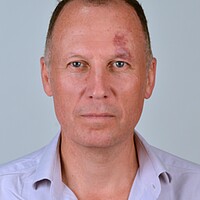Vatican turns its sights on alleged cash-smuggling priest
Loading...
| Rome
It reads like the opening chapter of a Dan Brown thriller – a Catholic priest working inside the Vatican recruits a secret service agent and a shadowy financier to smuggle 20 million euros ($26 million) in cash from Switzerland to Italy aboard a private plane.
Alerted to the alleged scam, investigators tap the priest’s telephone for months, gathering enough evidence to swoop in and arrest all three men, who allegedly met through an ancient chivalric society, the Constantine Order of St. George.
The priest even has a nickname among his peers – “Monsignor 500,” earned for his penchant for showing off a wallet full of 500 euro notes, each worth $650.
This is no work of fiction, but rather the first scandal to hit the four-month-old pontificate of Pope Francis. The uncovering of the plot, alleged to have taken place last summer, appears to justify the determination of the pope to clean up the Vatican’s murky finances and to push for sweeping reforms at the bank, which has been mired in allegations of money laundering for years.
'Spirit of friendship'
The silver-haired priest, Rev. Nunzio Scarano, was arrested on Friday and taken to Rome’s Regina Coeli prison, an imposing hulk of a building on the banks of the Tiber River, where he was questioned by police for three hours on Monday.
“He’s in a bad way, he’s exhausted and he’s sleeping badly,” his lawyer, Silverio Sica, says. “He did not expect things to work out this way.”
Fr. Scarano had “given as much explanation as possible” and had collaborated fully with investigators, Mr. Sica said.
The priest claims that he did not stand to gain personally in trying to bring the 20 million euros into Italy, and that he had acted out of “a spirit of friendship.” His goodwill was directed toward a rich Neapolitan shipping family who allegedly own the money. Investigators are trying to work out why the family entrusted so much money to the priest, amid suspicions of attempted tax evasion.
Scarano was no lowly parish priest. He had worked in commercial banks before joining the priesthood relatively late in life. At the Vatican, he worked as a senior accountant, but was suspended a month ago when the corruption allegations came to light. Prosecutors suspect him of funneling hundreds of thousands of euros through accounts he held at the Vatican bank.
Nello Rossi, one of the prosecutors in the case, says Scarano's close contacts "enabled him to act as a very private and illicit branch" of the bank. One account he controlled was labeled as funds for the elderly.
The three alleged plotters’ arrest came just 48 hours after the Argentine pope announced a special commission of inquiry to look into the activities of the bank, which is officially known as the Institute for Works of Religion.
Francis has given the commission carte blanche to delve into the murkiest corners of the bank, which is housed in the Torrione di Niccolo V, a fortress-like medieval tower within the walls of the city state.
Of the five members of the commission, two are American: Mary Ann Glendon, a Harvard law professor and a former US ambassador to the Holy See, and Monsignor Peter Wells, the third most senior official in the Vatican’s secretariat of state.
After Benedict XVI resigned earlier this year, cardinals from around the world gathered in Rome to elect his successor, and it was the Americans who were particularly insistent about the need to clean up the Vatican bank.
Appointing a trusted ally
The appointment of the commission was just the latest move by Francis to take the secretive bank to task. He has also appointed a trusted ally, a priest named Monsignor Battista Mario Salvatore Ricca, to effectively be his eyes and ears inside the Vatican bank.
The aim of all this is to haul the Vatican bank into the 21st century and to ensure that it meets standards of transparency set by Moneyval, a European body tasked with stamping out money laundering and the financing of terrorism.
Last July, the Vatican bank was found to have conformed to just half the tests set by Moneyval and to be wanting in key areas such as compliance on the reporting of suspicious transactions and due diligence on customers’ identities.
Moneyval said the Holy See had a long way to go before it could be included on an international “white list” of countries that can demonstrate financial transparency.
This latest plot may be packed full of skulduggery and intrigue, but as yet it does not come close to the last big banking scandal to shake the Holy See.
The Vatican was the majority shareholder in the Banco Ambrosiano, an Italian bank which collapsed in 1982 with huge losses. Its chairman, Roberto Calvi, was found hanging beneath Blackfriars Bridge in London.
His death was initially treated as suicide but the suspicion is that he was murdered, possibly by Mafia mobsters chasing money that he owed to them.
Founded in 1942, the Vatican bank does not lend money but manages assets of 7 billion euros in around 19,000 accounts held by Vatican departments, Catholic charities, and priests and nuns around the world.
Rev. Federico Lombardi, the Vatican spokesman, says the Holy See is prepared to “fully cooperate” with the Italian authorities who are investigating this latest scandal, while the Vatican bank has launched its own internal inquiry.








